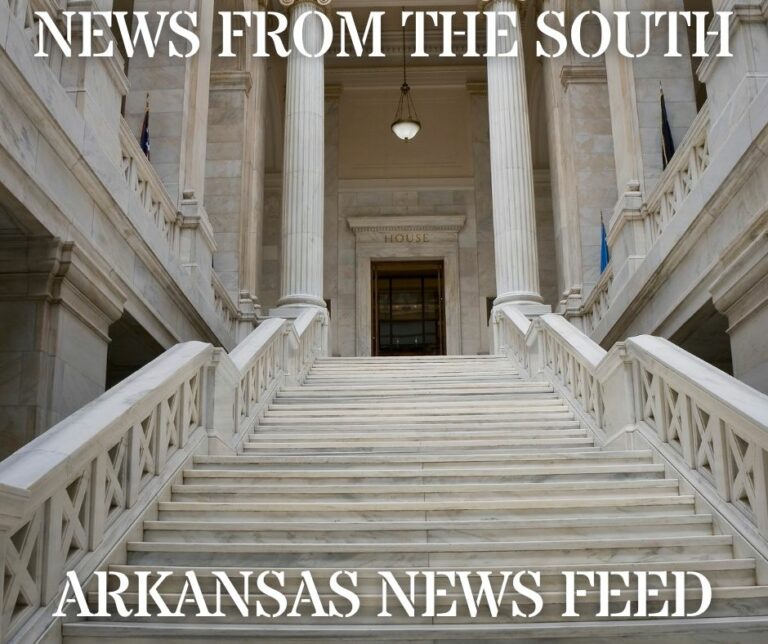News from the South - Tennessee News Feed
Fayette Co. Schools seeks end to desegregation case; Black constituents say they’re being ignored
by Cassandra Stephenson, Tennessee Lookout
August 4, 2025
At a Fayette County School Board meeting in April, Lamar Hobson decided he’d had enough.
He had unanswered questions about the school system’s proposed budget, which was being put together without the involvement of a finance director. The district has been without one for several months.
Before he could start speaking during public comment, Board Chair Warner Speakman cut him off. “I’m gonna ask you. Are you from this county? … Do you vote here?”
“You go up to the courthouse and check. I’m on the register,” Hobson, a 1981 graduate of Fayette-Ware High School, said before turning to Board Member Becky Trimm. “I sent you an email this morning. I’m in your district. You ain’t never spoke to me. Not one time.”
Speakman waved a Sheriff’s deputy toward the front of the room as Hobson turned to address a cheering audience.
“The board shows that they are not for us … They’re supposed to be representing us — the people — not a certain … hidden agenda,” Hobson shouted.
Speakman banged the gavel.
Tension has been palpable between the crowd and the school board this year, though Speakman told Tennessee Lookout that “there has been ‘no’ friction” after he read aloud a letter from the Sheriff’s Office concerning rules for crowd decorum at a June meeting.
This atmosphere comes as the board continues to push toward dissolving the consent decree that has held the school system accountable to the federal government for integrating public schools since 1965. The order was put in place after the government found that Fayette County failed to appropriately desegregate its schools.
By 2023, the school system had worked to eliminate discrimination in staffing, facilities, transportation and extracurricular activities, according to an order from U.S. District Court Judge S. Thomas Anderson.
In recognition of the district’s progress, Anderson approved a new consent decree in October 2023 that restricts desegregation obligations to a few remaining areas. This order requires the district to improve its efforts to recruit and retain diverse faculty, revise discipline policies to prevent racial discrimination and better identify and serve students through gifted programs and dual-enrollment classes, according to the U.S. Department of Justice.
It also requires the district to hold parent information and listening sessions multiple times each year and “listen and respond to questions, comments and concerns.”
Repeated comments from Hobson and other community members who attend school board meetings indicate a lack of trust in the school board’s decision-making processes and consideration of public feedback.
The majority of attendees at many of the board’s meetings are Black, mirroring the demographics of the school system itself. Nearly 55% of the school system’s 3,283 students in the 2020-2021 school year were Black, according to the most recent data available from the U.S. Department of Education’s Civil Rights Data Collection Office.
Six of the eight sitting school board members are white.
Continued scrutiny over minority representation
In February, the board voted to declare unitary status, asserting that federal monitoring is no longer necessary and the school system’s difficulties with representation are in the past. For that decision to take effect, either the plaintiffs – including the NAACP’s Legal Defense Fund – would have to agree that the district implemented the order in good faith, or the court would need to schedule an evidentiary hearing to determine the district’s compliance.
Fayette County School District has continued to file the required reports so its “progress toward a unitary system can be monitored,” court records show. The district has not filed a motion for declaration of full unitary status and case dismissal.
In multiple social media posts, Speakman states that ending the ongoing desegregation case is among his top priorities. He said the case and its requirements are costing the district money that could be better used elsewhere.
NAACP dismisses discrimination suit against Fayette County after commission passes new district map
Some community members responded to the school board’s vote with apprehension that removing federal accountability could lead to a backslide in progress.
Fayette County has continued to fall under scrutiny for issues of discrimination in recent years. The U.S. Department of Justice and the NAACP Legal Defense Fund separately sued the county earlier this year over its 2021 electoral map, which the lawsuits said illegally diluted the power of Black voters to elect candidates of their choice.
Both of the lawsuits were voluntarily dismissed after the county commission approved a new electoral map with three majority-Black, single-member districts in late June. The new map will be used in the 2026 election cycle.
Sitting school board member David Reeves drafted a letter to U.S. Rep. David Kustoff in April, asking the Memphis Republican to “(engage) the Department of Justice” to help Fayette County Public Schools end the consent decree.
Tennessee Lookout obtained the letter through a public records request that was initially denied by the board’s legal counsel. The letter was never shared with the public despite being reviewed by at least one other board member.
Using Fayette County Public Schools letterhead, Reeves wrote that the district has made “significant progress” in the decades since the case began.
“The ongoing legal oversight poses a considerable obstacle to our mission,” Reeves wrote. “The constraints imposed by the case restrict our operational flexibility, limiting our ability to make decisions best suited to the current needs of our community.”
Reeves signed the letter using his school board title. Legal counsel stated that Reeves was not authorized to write the letter as a representative of the school board and acted without the board’s permission.
It’s not clear if Reeves sent the letter. Reeves did not respond to multiple requests for comment. Representatives for Kustoff did not respond to questions about the letter.
‘They shut (discussion) down’
Latoya Parker, who describes herself as a teachers’ advocate, started attending school board meetings in person in May. Like Hobson, she described the board’s function as a “hidden agenda.”
She said the board votes on big items — like the budget, which was ultimately approved this summer — without much discussion at the full board meeting.
“When something is going to have to come out, they shut (discussion) down,” Parker said.
Multiple public speakers over the course of several meetings said board members failed to respond to or acknowledge emails from constituents.
Tennessee Lookout reached out to the eight sitting board members via email. Kevin Powers, a former Fayette County commissioner who was appointed by the County Commission to fill a vacancy on the board in May, declined to comment, citing his short time in the seat. Speakman also responded, referencing the Sheriff’s Office letter and declining to comment further. The remaining six members did not respond.
School board members have made some steps toward building a relationship with the community.
Parker said the board’s responses to public comment at a meeting on June 5 were markedly different from the norm. Board members said they had taken down a list of questions voiced by speakers during public comment. One board member suggested the board review rules of order to improve how meetings are run. The suggestion drew applause from the audience.
NAACP Fayette-Somerville Branch President Elton Holmes frequently attends and speaks at meetings. In early July, he entreated the board and newly selected Superintendent Don McPherson to create a policy for answering questions from community members.
“The only way we’re going to be able to work together is we’re gonna have to communicate,” Holmes said at a July 2 meeting. “By giving the answers to the questions … it probably will cut down on some of the animosity that the constituents have right now for the school board.”
At a committee meeting on July 22, Powers said he is “fully in favor” of creating a policy regarding addressing public comments.
“There’s nothing worse than putting up your thoughts about something and then having it look like, eh, we don’t care what’s going on. We do,” he said, asking community members to email all board members their ideas for such a policy.
Speakman echoed Powers as he closed the meeting.
“Anything that you have that you’d like to see, just let us know,” Speakman said.
Hobson said he keeps speaking at meetings because he feels the board isn’t listening.
“Somebody has to step up and put a voice out there and let the people in the community know that you’ve got a voice,” he said. “All you got to do is come together … and protest this. This is not right.”
GET THE MORNING HEADLINES.
Tennessee Lookout is part of States Newsroom, a nonprofit news network supported by grants and a coalition of donors as a 501c(3) public charity. Tennessee Lookout maintains editorial independence. Contact Editor Holly McCall for questions: info@tennesseelookout.com.
The post Fayette Co. Schools seeks end to desegregation case; Black constituents say they’re being ignored appeared first on tennesseelookout.com
Note: The following A.I. based commentary is not part of the original article, reproduced above, but is offered in the hopes that it will promote greater media literacy and critical thinking, by making any potential bias more visible to the reader –Staff Editor.
Political Bias Rating: Center-Left
This article primarily reports on ongoing community tensions and concerns over racial equity and representation within Fayette County schools. The focus on civil rights history, the federal desegregation consent decree, and the community’s distrust of predominantly white school board members suggests a viewpoint attentive to racial justice and systemic inequities. The coverage emphasizes voices critical of the school board’s actions, particularly from Black community members and civil rights organizations like the NAACP. However, the piece maintains a mostly factual tone without overt editorializing, providing space for multiple perspectives including the board’s statements, which positions it toward a center-left bias reflecting concerns about social justice and inclusion.
News from the South - Tennessee News Feed
Tennessee National Guard to join D.C. police order
by Sam Stockard, Tennessee Lookout
August 19, 2025
Tennessee Gov. Bill Lee is dispatching National Guard troops to Washington, D.C., this week to join the president’s law enforcement takeover in the nation’s capital.
Acting on orders from President Donald Trump, the governor granted a request to help the District of Columbia National Guard with a “security mission,” spokesperson Elizabeth Johnson said.
Tennessee will join several other Republican-controlled states and send 160 Guard troops this week to D.C. “to assist as long as needed,” according to Johnson. They will work with local and federal law enforcement agencies on monument security, community safety patrols, federal facilities protection and traffic control, she said.
The Tennessee Guard deployment will be funded and regulated by the federal government.
At least four other Republican governors are sending nearly 1,000 National Guard troops to D.C. after Trump activated 800 D.C. soldiers.
Trump ordered the federal takeover of Washington, D.C., law enforcement despite opposition from local officials who said crime is down some 30%.
Following a legal challenge by D.C. officials, the Trump administration backed off appointing a federal official to head the department and agreed to leave the city’s police chief in command. U.S. Attorney General Pam Bondi, though, told local police to work with federal officers on immigration enforcement even if city laws are conflicting.
Lee also said he would deploy National Guard troops to provide logistical help with Immigration and Customs Enforcement officers in Tennessee so they can spend more time on deportation.
Democratic state Rep. John Ray Clemmons of Nashville accused the governor of “uprooting” Guard personnel from their families to distract people from Trump’s “refusal to release the Epstein files,” a reference to the Jeffrey Epstein sex trafficking investigation and whether Trump is mentioned in the documents.
Clemmons pointed out violent crime in D.C. decreased by 26% this year while overall crime is down by 7%.
“If Trump was serious about addressing crime in D.C., all he and Congress have to do is better support and fund D.C. police, as they have the power to do, rather than militarize one of the most beautiful cities in America,” Clemmons said.
YOU MAKE OUR WORK POSSIBLE.
Tennessee Lookout is part of States Newsroom, a nonprofit news network supported by grants and a coalition of donors as a 501c(3) public charity. Tennessee Lookout maintains editorial independence. Contact Editor Holly McCall for questions: info@tennesseelookout.com.
The post Tennessee National Guard to join D.C. police order appeared first on tennesseelookout.com
Note: The following A.I. based commentary is not part of the original article, reproduced above, but is offered in the hopes that it will promote greater media literacy and critical thinking, by making any potential bias more visible to the reader –Staff Editor.
Political Bias Rating: Left-Leaning
The content presents a critical view of Republican actions, particularly focusing on Tennessee Governor Bill Lee and former President Donald Trump’s deployment of the National Guard to Washington, D.C. It emphasizes opposition from Democratic officials and highlights concerns about militarization and distraction from other issues. The article’s framing and choice of quotes suggest a perspective that leans toward the left side of the political spectrum, critiquing conservative policies and leadership decisions.
News from the South - Tennessee News Feed
Survey shows Tennessee teachers’ feelings about cell phones, disciplinary measures and school culture
SUMMARY: A recent Tennessee Education Survey of nearly 40,000 teachers reveals most middle and high school teachers find cellphone use disruptive, with 73% reporting cheating via phones. While 94% say schools restrict phone use during class, half of high school teachers want a full campus ban. A new state law bans wireless devices during instruction but lets districts set specific rules. Teacher retention is driven mainly by school culture, despite only a third being satisfied with pay. Most teachers support current discipline methods and evaluations, with early-career teachers spending more time on discipline but generally satisfied with evaluations improving their teaching.
Read the full article
The post Survey shows Tennessee teachers’ feelings about cell phones, disciplinary measures and school culture appeared first on wpln.org
News from the South - Tennessee News Feed
U.S. Agriculture secretary backs Tennessee higher ed grant cuts
by Sam Stockard, Tennessee Lookout
August 18, 2025
U.S. Agriculture officials announced a new initiative Monday to stop subsidies for solar energy panels that take up farmland while supporting cuts in agriculture grants to Tennessee universities.
Agriculture Secretary Brooke Rollins introduced the initiative by the Trump administration after a Future Farmers of America breakfast at the State Fairgrounds in Lebanon where she said the federal government will make new grants to bolster Tennessee farming while targeting grants that don’t help farmers’ production.
Rollins criticized the Biden administration’s Inflation Reduction Act and “market distorting incentives” for solar panels, which she said are eliminating Tennessee farmland.
The secretary made the statements even though a study by the nonpartisan Tennessee Advisory Commission on Intergovernmental Relations found that solar facilities aren’t likely to be the “primary driver” of development on farmland for decades. The study also determined that land can be returned to farming once a solar facility goes out of use.
Earlier this year, the federal government made dramatic cuts to higher education grants, including eliminating more than $31 million in funding to the University of Tennessee Institute of Agriculture, which houses agricultural research and resources for Tennessee farmers and communities in 95 counties.
Rollins defended the reductions, saying “Those cuts were being made in programs that did not align with the president’s vision of putting farmers first.”
Deputy Secretary Stephen Vaden of Tennessee described the reduction as a “repurposing” and said changes were made in research funding based on whether a grant “helps a farmer in the field make more money.” Projects aimed at “clean energy” or based on “racial criteria” were eliminated, he said.
In addition to stopping solar panel development on farmland, Rollins announced that nearly $89 million will go toward 13 rural development projects in 28 Tennessee counties to “promote partnerships” and infrastructure investments for rural education. The department has distributed nearly $100 million this year to more than 10,000 farmers through the Emergency Commodity Assistance Program, according to Rollins.
Some farmers have said they expect prices to increase because of President Donald Trump’s tariffs, which are forcing them to pass on higher rates to customers. Rollins said Monday the administration has signed eight new trade agreements expected to boost the nation’s economy.
GET THE MORNING HEADLINES.
Tennessee Lookout is part of States Newsroom, a nonprofit news network supported by grants and a coalition of donors as a 501c(3) public charity. Tennessee Lookout maintains editorial independence. Contact Editor Holly McCall for questions: info@tennesseelookout.com.
The post U.S. Agriculture secretary backs Tennessee higher ed grant cuts appeared first on tennesseelookout.com
Note: The following A.I. based commentary is not part of the original article, reproduced above, but is offered in the hopes that it will promote greater media literacy and critical thinking, by making any potential bias more visible to the reader –Staff Editor.
Political Bias Rating: Center-Left
The article largely reports on U.S. Agriculture Secretary Brooke Rollins’ policy announcements but introduces balancing context that slightly shifts the tone. While it covers her criticisms of the Biden administration and defense of Trump-era cuts, it also highlights a nonpartisan Tennessee study contradicting her claims about solar panels reducing farmland. This inclusion, along with details on higher education grant cuts and references to “racial criteria” in funding, frames the administration’s moves with a degree of skepticism. The reporting avoids overt editorializing but leans toward questioning Republican policies, giving it a mild Center-Left tilt.
-
News from the South - Tennessee News Feed5 days ago
GRAPHIC VIDEO WARNING: Man shot several times at point-blank range outside Memphis convenience store
-
News from the South - Texas News Feed4 days ago
Kratom poisoning calls climb in Texas
-
News from the South - Texas News Feed2 days ago
New Texas laws go into effect as school year starts
-
News from the South - Florida News Feed2 days ago
Floridians lose tens of millions to romance scams
-
News from the South - Kentucky News Feed5 days ago
Unsealed warrant reveals IRS claims of millions in unreported sales at Central Kentucky restaurants
-
Our Mississippi Home7 days ago
Pride of Mississippi Marching Band to Kick Off Season with Free Concert
-
News from the South - Arkansas News Feed7 days ago
Idaho is losing OB-GYNs. Doctors who remain are trying to shoulder the extra burdens.
-
Mississippi Today5 days ago
‘Get a life,’ Sen. Roger Wicker says of constituents













































